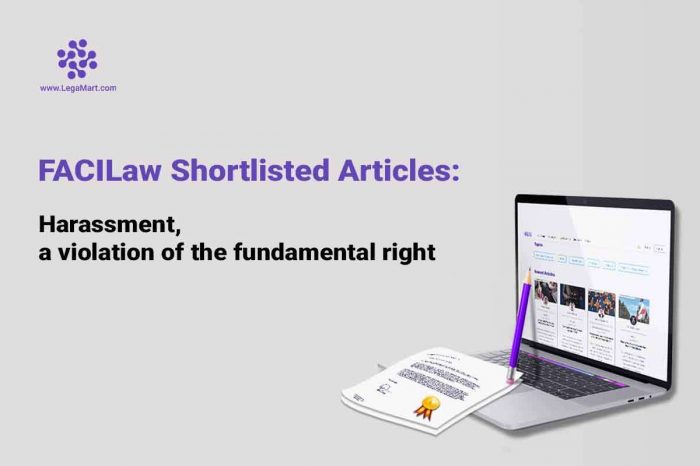Criminal Law
Human Rights
Human rights are the fundamental rights and freedoms that every human being is entitled to, regardless of their race, gender, nationality, religion, or any other status. These rights are enshrined in international law, including the Universal Declaration of Human Rights and other international treaties and conventions.
-
Civil and political rights
-
Economic, social, and cultural rights
Civil and political rights
Human rights law covers a broad range of issues, including civil and political rights, such as the right to free speech, assembly, and fair trial, as well as economic, social, and cultural rights, such as the right to education, health care, and adequate housing. Human rights law also includes issues related to discrimination, torture, genocide, and crimes against humanity.
Access to a lawyer is critical in the field of human rights law. Lawyers who specialize in this area can assist individuals and groups who have experienced violations of their human rights, whether by the government or other entities. They can provide legal representation and advice, as well as help with filing complaints and seeking remedies.
There are also organizations and non-profits dedicated to promoting and protecting human rights, such as Amnesty International, Human Rights Watch, and the International Commission of Jurists. These organizations often have lawyers on staff who work to defend human rights around the world.
If you have experienced a violation of your human rights, it is important to seek legal assistance as soon as possible. A human rights lawyer can help you understand your legal rights and options, and work to hold those responsible accountable for their actions.
Economic, social, and cultural rights
Economic, social, and cultural rights (ESCR) are a set of human rights that focus on ensuring individuals have access to basic needs such as food, healthcare, education, and housing. These rights are enshrined in various international human rights instruments, including the International Covenant on Economic, Social and Cultural Rights.
ESCR are considered essential for achieving social justice and equality, as they aim to address the root causes of poverty and inequality. They recognize that economic, social, and cultural factors can impact an individual’s ability to enjoy other human rights, such as civil and political rights.
Some examples of ESCR include:
- The right to work and fair working conditions
- The right to education
- The right to access healthcare services
- The right to adequate standard of living, including food, clothing, and housing
- The right to participate in cultural life and enjoy the benefits of scientific progress
Governments have a responsibility to respect, protect, and fulfill these rights. This means that they must ensure their policies and practices do not violate these rights, take steps to prevent violations by non-state actors, and actively work to ensure individuals can enjoy these rights.
Find Best Lawyers and Legal help in
Latest Articles
Tell us more about your problem.
Please give a brief description about what it is you need to talk to our lawyers about ?
Frequently Asked Questions
What are the legal protections for specific human rights, such as freedom of expression, association, and religion, and how do they differ across jurisdictions?
Legal protections for specific human rights, such as freedom of expression, association, and religion, can vary across jurisdictions. Here are some key examples:
Freedom of expression: In many countries, freedom of expression is protected under constitutional or statutory law, which guarantees the right to express opinions and ideas freely without fear of government reprisal. However, the scope of this protection may differ between countries, with some allowing more expansive forms of expression than others.
Freedom of association: The right to freedom of association is also guaranteed by many constitutions and international human rights instruments. This right protects individuals’ ability to form and join groups, including political parties, trade unions, and other civil society organizations, without interference from the government.
Freedom of religion: Many countries guarantee the right to freedom of religion, which includes the right to practice one’s religion or beliefs, to change one’s religion, and to manifest one’s religion or beliefs through worship, observance, and practice. However, the extent of this protection may vary depending on the country and cultural context.
These legal protections can differ across jurisdictions due to a variety of factors, including historical, cultural, and political influences. For example, in some countries, certain forms of expression or association may be regarded as threats to national security or social cohesion, leading to greater restrictions on these rights. In other contexts, such as those with strong democratic traditions, these rights may be more robustly protected.
Overall, understanding the legal protections for specific human rights requires an awareness of the legal frameworks and cultural contexts in different jurisdictions, as well as an appreciation for the importance of these rights in promoting dignity, equality, and respect for human rights worldwide.
How do national laws and regulations interact with international human rights law, and what are the potential conflicts and challenges?
National laws and regulations interact with international human rights law in a complex way, as both are intended to protect the rights and dignity of individuals within their respective domains. Here are some key ways that national laws and international human rights law can interact:
Incorporation: In some cases, national laws may explicitly incorporate international human rights standards into their legal frameworks, either through constitutional provisions or through the adoption of international treaties and conventions.
Interpretation: National courts may also be called upon to interpret and apply international human rights law, particularly where there is ambiguity or disagreement over how these standards should be applied in specific contexts.
What are the legal implications of discrimination and inequality in various forms, including gender, race, ethnicity, sexuality, and disability?
Discrimination and inequality in various forms, including gender, race, ethnicity, sexuality, and disability, can have significant legal implications. Here are some key examples:
Employment discrimination: Discrimination on the basis of gender, race, ethnicity, sexuality, or disability is prohibited in many countries under employment law. This includes prohibiting employers from discriminating against individuals in hiring, promotion, or termination based on these characteristics.
Education discrimination: Discrimination on the basis of gender, race, ethnicity, sexuality, or disability is also prohibited under education law, which requires schools and universities to provide equal access to education for all students, regardless of their background.
Criminal justice system: Discrimination and inequality can also manifest in the criminal justice system, where people from marginalized communities may be more likely to be arrested, convicted, and sentenced to harsher penalties than others. This can result in violations of due process rights and unequal treatment under the law.
Housing discrimination: Discrimination on the basis of gender, race, ethnicity, sexuality, or disability is also prohibited in many countries under housing law. This includes prohibiting landlords from refusing to rent or sell a property to someone based on their protected characteristics.
Healthcare discrimination: Discrimination and inequality can also manifest in healthcare settings, where people from marginalized communities may receive lower quality care or face barriers to accessing medical treatment based on their identity.
Overall, discrimination and inequality in various forms can have serious legal implications, and it is important to recognize and address these issues through legal frameworks that promote equality, non-discrimination, and respect for human rights.
How do human rights apply in the context of conflict and crisis situations, including issues such as refugee and asylum law, humanitarian aid, and the protection of civilians?
Human rights apply in the context of global economic and social structures by providing a framework for addressing issues such as poverty, development, and corporate accountability. Here are some key ways that human rights can be applied:
- Poverty: Human rights provide a framework for addressing poverty as a violation of basic human rights, such as the right to an adequate standard of living, including food, shelter, and healthcare. Governments have a responsibility to ensure that their citizens have access to these basic necessities, and international organizations can work to hold governments accountable for meeting these obligations.
- Development: Human rights can guide development efforts by emphasizing the importance of participation, non-discrimination, and accountability in development processes. This includes ensuring that marginalized and vulnerable communities have a say in decisions that affect their lives, and that development projects respect their human rights and do not cause harm.
- Corporate accountability: Human rights can also be used to promote corporate accountability, particularly in cases where corporations may contribute to human rights abuses through their actions or operations. This can include holding corporations accountable for environmental damage, labor violations, or other violations of human rights.
Overall, applying human rights in the context of global economic and social structures requires a commitment to promoting and protecting the rights of all individuals, regardless of their social or economic status. This involves recognizing the interdependence of human rights and working to ensure that economic and social policies support the realization of human rights for all.













